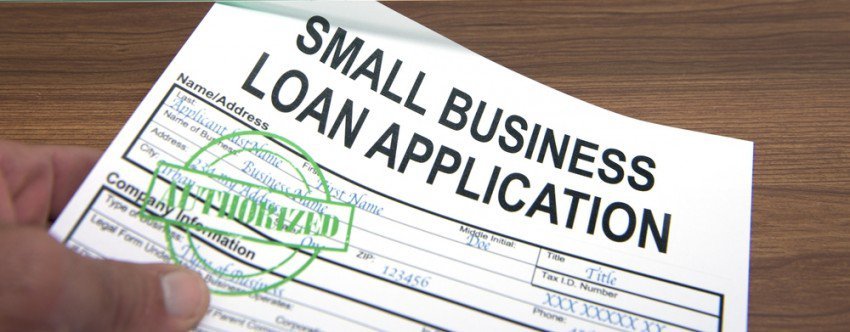When it comes to funding your small business, securing a loan can be an essential step in achieving growth and success. However, with so many different types of small business loans available, it’s important to understand the options and determine which one best suits your needs. In this blog, we’ll explore various small business loan options and provide tips on how to choose the right one for your business.
1. Traditional Bank Loans
What is it?
Traditional bank loans are typically long-term loans provided by banks or credit unions. These loans come with relatively low interest rates but often require a strong credit history, collateral, and a detailed business plan.
When to Consider:
If your business has a solid financial history and you need a large amount of capital for expansion, equipment purchase, or long-term projects, a traditional bank loan can be a good option. However, the approval process can be lengthy and competitive.
Pros:
- Low interest rates
- Flexible loan amounts
- Longer repayment terms
Cons:
- Strict eligibility requirements
- Long approval times
2. SBA Loans (Small Business Administration Loans)
What is it?
SBA loans are government-backed loans designed to help small businesses get funding. The SBA does not lend money directly but guarantees a portion of the loan, which reduces the risk for lenders.
When to Consider:
If you have trouble qualifying for a traditional bank loan but need a large sum of money for your business, an SBA loan can be a good fit. They are particularly useful for startups or businesses with limited financial history.
Pros:
- Lower interest rates
- Longer repayment periods
- Lower down payments required
Cons:
- Strict qualifications
- Lengthy application process
- Extensive documentation needed
3. Online Business Loans
What is it?
Online business loans are provided by online lenders, often with more flexible terms and faster approval processes compared to traditional banks. They can include term loans, lines of credit, and merchant cash advances.
When to Consider:
Online loans are a great option if you need quick access to capital. They are particularly useful for businesses that have urgent financial needs or may not meet the qualifications for traditional loans.
Pros:
- Fast approval and funding
- Less stringent eligibility requirements
- Flexible terms
Cons:
- Higher interest rates compared to traditional loans
- Shorter repayment periods
4. Business Lines of Credit
What is it?
A business line of credit is a revolving loan that gives you access to a set amount of capital that you can borrow from as needed. You only pay interest on the amount you use, and as you repay, the credit becomes available again.
When to Consider:
If your business needs flexible, on-demand access to cash for short-term expenses, such as inventory purchases or seasonal fluctuations, a line of credit can be the ideal option.
Pros:
- Flexible access to funds
- Only pay interest on what you borrow
- Can be used for various business needs
Cons:
- Higher interest rates compared to other loan options
- Often requires a good credit score to qualify
5. Equipment Financing
What is it?
Equipment financing allows you to borrow money specifically to purchase or lease equipment for your business. The equipment itself serves as collateral for the loan.
When to Consider:
If your business needs new equipment but you don’t have the cash to buy it upfront, equipment financing can help. It’s often used by businesses in industries such as manufacturing, construction, and transportation.
Pros:
- Specifically for equipment purchases
- Lower interest rates
- The equipment acts as collateral
Cons:
- Only applicable for equipment-related purchases
- Could be difficult to secure if the business is new or doesn’t have assets
6. Invoice Financing
What is it?
Invoice financing, or accounts receivable financing, allows you to borrow against the money owed to you by clients. The lender advances you a percentage of the invoice amount, and you repay the loan when your client pays the invoice.
When to Consider:
If your business has a lot of outstanding invoices and needs immediate cash flow, invoice financing can help. It’s particularly useful for service-based businesses with long payment cycles.
Pros:
- Quick access to capital
- No need for collateral other than outstanding invoices
- Improves cash flow without waiting for customer payments
Cons:
- Fees can be high
- Your business may need to have a strong client base for this to work effectively
7. Merchant Cash Advances
What is it?
A merchant cash advance (MCA) provides you with an upfront lump sum payment in exchange for a percentage of your daily credit card sales. It’s not a loan but a cash advance, and repayment is based on future sales.
When to Consider:
MCAs can be helpful if you have consistent credit card sales and need quick access to funds. This option is suitable for businesses that face seasonal cash flow issues or need emergency funding.
Pros:
- Fast approval and funding
- No collateral required
- Flexible repayment tied to daily sales
Cons:
- High interest rates and fees
- Daily repayments can strain cash flow
How to Choose the Right Small Business Loan for You?
The right loan for your business depends on your unique needs, financial situation, and business goals. Here are some factors to consider:
- Purpose: What do you need the loan for? Equipment? Working capital? Expansion?
- Repayment Ability: Can you afford the monthly payments? How long do you need to repay the loan?
- Qualification Requirements: Do you meet the eligibility criteria for traditional loans or SBA loans, or do you need a more flexible option like an online loan or line of credit?
- Speed: How quickly do you need the money? If you need fast access to cash, an online loan or MCA may be your best bet.
- Collateral: Do you have assets to use as collateral? If not, look for unsecured loan options like lines of credit or SBA loans.
Final Thoughts
Choosing the right small business loan is crucial to your business’s success. Take time to evaluate your business needs, financial health, and loan eligibility. If you need help, consider working with an expert financial advisor or business consultant to guide you through the decision-making process.
By understanding your options and carefully considering which type of loan works best for your business, you can set yourself up for growth and long-term success.
FAQ: Exploring Small Business Loan Options: What Works for Your Business?
1. What are the different types of small business loans?
There are several types of small business loans, including:
- Traditional Bank Loans
- SBA Loans
- Online Business Loans
- Business Lines of Credit
- Equipment Financing
- Invoice Financing
- Merchant Cash Advances
Each has its benefits, terms, and requirements, depending on your business needs and qualifications.
2. How do I know which loan option is right for my business?
The best loan for your business depends on your needs, financial situation, and goals. For example:
- Traditional loans are ideal for businesses with strong credit histories and large capital needs.
- SBA loans are suitable for businesses that need long-term funding with low interest rates but may have limited financial histories.
- Online loans work well for businesses that need quick funding and have more flexible qualifications.
3. What is an SBA loan, and how does it differ from a traditional loan?
An SBA loan is a government-backed loan that helps small businesses access capital. It typically offers lower interest rates and longer repayment terms than traditional bank loans. The key difference is that SBA loans are partially guaranteed by the U.S. Small Business Administration, making them less risky for lenders.
4. Can I qualify for a small business loan with bad credit?
While bad credit may make it more difficult to qualify for traditional loans, options such as online business loans or merchant cash advances may be available for businesses with less-than-perfect credit. However, these may come with higher interest rates and fees.
5. How long does it take to get a small business loan?
The time it takes to receive a loan depends on the type of loan and lender:
- Traditional bank loans can take several weeks or even months for approval.
- SBA loans can also take a few weeks due to the application process.
- Online business loans often have faster approval times, with funding available in a matter of days.
6. What are the pros and cons of an online business loan?
- Pros: Fast approval and funding, less strict eligibility criteria, more flexible terms.
- Cons: Higher interest rates, short repayment periods, and fees can be higher compared to traditional loans.
7. What is a business line of credit, and when should I use it?
A business line of credit allows you to borrow funds up to a set credit limit and only pay interest on what you use. It’s ideal for managing cash flow fluctuations, paying for unexpected expenses, or funding short-term needs like inventory or payroll.
8. What are equipment financing loans?
Equipment financing loans are designed specifically for businesses needing to purchase or lease equipment. The equipment itself serves as collateral for the loan, making it a good option for businesses in industries like manufacturing, construction, or transportation.
9. How does invoice financing work?
With invoice financing, you borrow money based on your outstanding invoices. A lender advances you a percentage of the invoice amount, and you repay the loan when your customer pays. This option is ideal for businesses that face slow-paying clients but need immediate cash flow.
10. Is a Merchant Cash Advance (MCA) a good option for my business?
An MCA is suitable if your business has strong credit card sales and needs immediate funding. Repayments are based on a percentage of your daily credit card transactions, but this option comes with higher fees and interest rates compared to other loan types.
11. What are the risks associated with taking out a small business loan?
Risks include:
- The potential for debt accumulation if you’re unable to repay the loan.
- Higher interest rates or unfavorable terms for businesses with bad credit.
- The need for personal guarantees or collateral, which can affect personal assets if the business defaults.
12. Can I apply for multiple small business loans at the same time?
Yes, you can apply for multiple loans, but it’s important to understand the impact on your credit score. Applying for too many loans at once can negatively affect your credit, especially if you’re declined or accepted for loans that aren’t a good fit.
13. What documents are typically required to apply for a small business loan?
Most lenders will ask for:
- Business and personal tax returns
- Financial statements (balance sheets, profit, and loss statements)
- Business plan (for traditional loans or SBA loans)
- Proof of ownership and legal structure
- Details about business debts and obligations
14. Should I hire a financial advisor to help me choose the best loan?
If you’re unsure which loan option is right for your business or need help navigating the application process, consulting a financial advisor can be helpful. They can provide expert advice on loan options, terms, and eligibility based on your business’s specific situation.
Read More:
- Motorcycle Loans vs. Personal Loans: Which Is Right in Ohio?
- How Does a Home Equity Loan Work? Types, Benefits & Providers
- Personal Loans in the USA: Benefits, Planning, Costs, and Best Providers
- Personal Loans in the USA: Benefits, Planning, Costs, and Best Providers
- Business Loan USA: Complete Guide on Types, Benefits, Plans & Top Providers










